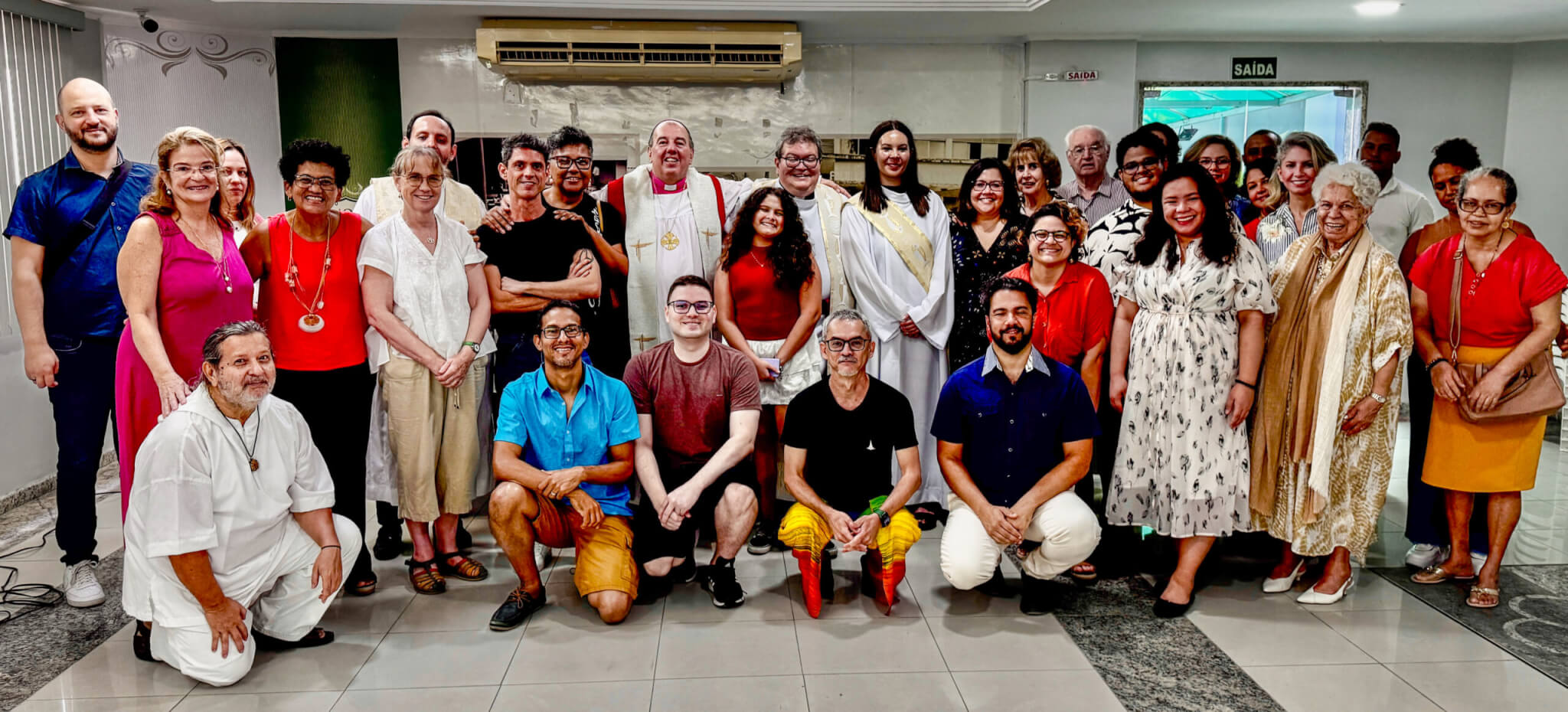The Anglican Alliance is delighted to be partnering in a groundbreaking event bringing together church leaders, indigenous and Afro-descendant theologies, and practitioners to explore the power of indigenous theologies in advancing advocacy and social change.
Challenging the Status Quo
The colloquium seeks to address the urgent need for de-colonial perspectives within theological discourse. By centering the voices and experiences of indigenous and traditional communities from communities in Fiji, New Zealand Aotearoa and Polynesia, the Philippines and Latin America, the event aims to challenge traditional, Western-centric approaches to theology and equip faith leaders to advocate for systemic change.
Key Questions and Themes
The colloquium will delve into critical questions surrounding the urgency of mainstreaming indigenous theologies and struggles for rights in:
- Enhancing advocacy efforts: How can these theologies inform and strengthen advocacy strategies for climate justice, environmental racism, anti-racism, and social equality?
- Influencing theological establishments: How can indigenous and traditional communities’ perspectives challenge and transform institutions heavily influenced by white and Westernized theological traditions?
- Driving societal change: How can indigenous and traditional communities’ theologies serve as instruments of change, creating tangible social impact?
The International Colloquium on Theological Education and Post/De(s)coloniality: Theology and Struggles for Climate Justice and Social Equality is taking place from November 25th to 30th 2024 in Recife, Brazil. The colloquium is a collaboration between the Anglican Seminary of the Diocese of Recife and leading international organisations, including the Anglican Alliance, Christian Aid, United Society Partners in the Gospel (USPG), and national partners such as Joaquim Nabuco Foundation (FUNDAJ) – Laboratório de Estudos de Religião e Política (LABERP), National Board for Theological Education in the Episcopal Anglican Church of Brazil (JUNET), Centre for Anglican Studies (CEA) and the University of Pernambuco and Ecumenical Coordination for Diaconia (CESE).Interactive Format for Deeper Engagement
The colloquium is organised to privilege as methodology spaces for dialogue and mutual learning and unlearning. It will feature two distinct segments:
- Informal Gatherings: International guests will engage in small, informal conversations on climate justice, theologies, advocacy, and influencing strategies.
- Formal Colloquium: A formal gathering of around 60 participants, among church leaders, students, indigenous peoples, international partners and activists will engage in presentations, discussions, and collaborative workshops.
A Flavour of Decolonisation
On the eve of the colloquium, participants gathered in a eucharistic service at the Cathedral of the Good Samaritan in Recife led by Bishop João Peixoto. The Sunday at the end of November traditionally celebrates Christ the King in Anglican tradition. For many Indigenous people, the concept of kingship is inherently problematic, as the preacher, Revd. Tamsyn Kereopa, from from Te Pihopatanga o Aotearoa – the Maori Anglican Church in New Zealand – explains in this extract from her sermon.
“This morning, we celebrate the Feast of Christ the king, a festival that was instituted in order to mark the Christian allegiance above and beyond earthly supremacy, and the counter cultural nature of the kingdom of God which in Jesus’ own self-description in Luke 4, brings good news to the poor, releases those who are kept captive, gives sight to the blind and liberates all those who are oppressed. We mark today a kingdom that stands against, and as a constant critique to, all forms of injustice and all causes of oppression. …
“The notion of kingship itself, however, remains notoriously difficult for many indigenous peoples. Not only in terms of concept, that is, positionality, hierarchy, and the model of dominance and violence so often connected with the idea of kingship and royalty, but also the arbitrary nature and time specific allocation of power. So that even alternative models of kingship, however admirable and life giving in some respects, can never truly purge the violent and dominating aspects of the concept in their failure to do away with it completely.”
Join the Conversation
Stay updated on the colloquium’s developments and join the conversation on social media using the hashtag #IndigenousTheologies. The formal part of the colloquium will be broadcasted via YouTube (in Portuguese only).
For more information:
Dr Elizabeth Perry (Anglican Alliance): elizabeth.perry@anglicancommunion.org
Rev Dr Gustavo Oliveira (Anglican Diocese of Recife): gustavo.soliveira@ufpe.br
USPG
https://www.facebook.com/USPGglobal
https://www.instagram.com/uspgglobal/
Anglican Alliance
https://www.facebook.com/search/top?q=anglican%20alliance
https://www.instagram.com/anglican_alliance/
Christian Aid

